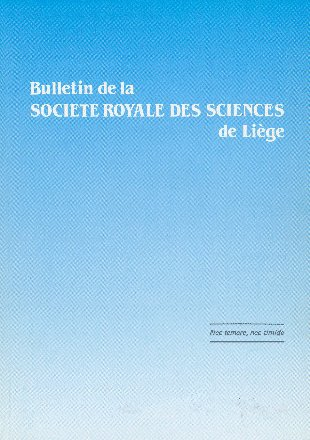- Startpagina tijdschrift
- Volume 83 - Année 2014
- Articles
- Effets in vitro et in vivo du compost sur Verticillium dahliae, agent causal de la verticilliose de la tomate
Weergave(s): 1879 (19 ULiège)
Download(s): 2007 (21 ULiège)
Effets in vitro et in vivo du compost sur Verticillium dahliae, agent causal de la verticilliose de la tomate

Documenten bij dit artikel
Bijlagen
Résumé
Les milieux à base d’extraits d’un compost (MEC) de déchets urbains solides additionnés ou non de glucose et stérilisés à 80°C ont inhibé respectivement de 95,95% et à 100% la croissance mycélienne et la sporulation de Verticillium dahliae. Les milieux MEC stérilisés à 120°C ont plutôt réduit la densité du mycélium que la croissance diamétrale. Ils ont par ailleurs permis une forte inhibition de la sporulation respectivement de 80,93% sur le milieu MECG120°et 86,53% sur le milieu MECsG120°. In vivo, le compost utilisé comme amendement du sol a réduit le rabougrissement et l’altération foliaire des plants de tomate inoculés par V. dahliae en pépinières de 75,04% et 81,05% respectivement. Ces pourcentages sont proches ou similaires à ceux obtenus par la tourbe amendée de compost. Les deux traitements ont surpassé l’effet de la tourbe seule qui n’a assuré que 7,01% de réduction de l’altération foliaire. La correction du sol avec le compost a permis l’inhibition de la pénétration et de la colonisation des tissus vasculaires des plants de tomate par V. dahliae et a confiné le pathogène au niveau de 41,66% des racines analysées et a inhibé de 100% son ascension vers l’hypocotyle des plantes inoculées.
Abstract
Media prepared with compost extract (MEC) of MSW added or not by glucose and sterilized at 80° inhibited respectively 95,95% and 100% mycelial growth and sporulation of Verticillium dahliae. MEC sterilized at 120°C have rather reduced the density of the mycelium than its growth diameter. They also allowed a strong inhibition of sporulation, respectively 80,93% on the MECG120° and 86,53% on MECsG120°. In vivo, the compost used as soil amendment reduced stunting and leaf damage tomato plants inoculated with V. dahliae in nursery by 75,04% and 81,05% respectively. These percentages are close or similar to those obtained by peat amended with compost. Both treatments surpassed the effect of peat alone that has ensured only 7,01% reduction of leaf damage. The correction of the soil with compost resulted in the inhibition of the penetration and colonization of vascular tissues of tomato plants by V. dahliae and confined the pathogen at 41,66% of analyzed roots and inhibited 100% its propagation intothe hypocotyl of inoculated plants.






